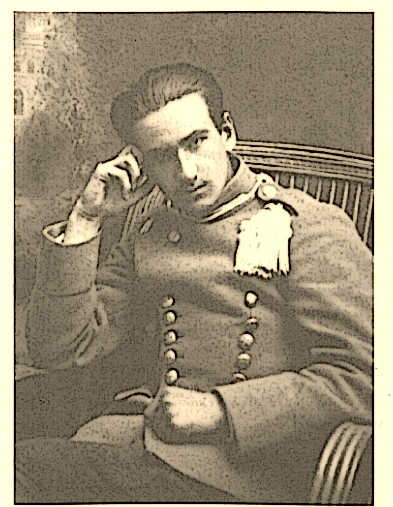Salvete Omnes,
Ukraine is in flames - outnumbered and outgunned Ukrainian soldiers and militiamen are still defending parts of the city of Mariupol - they are heroes of this Ruso-Ukrainian war. - do let the peace return. Ukrainian refugees in Poland are still growing(more than 2,3 million in 47 days!!), and I daresay soon the Poles will become overwhelmed without help from USA and EU.
+++++++++++
Jozef Mackiewicz, born April 1, 1902AD, was one of the most important Polish writers and publicists during the XX century, but he is rather unknown in Poland proper.
Mostly because he was a stalwart anti-Communist and Polish Communist through education and media, prior to 1990 AD, sought to remove Mackiewicz's writings from the popular literary and political discourse.
And in the years from the so called transition of 1989-90AD , in the court of public opinion shaped by a liberal Polish daily paper Gazeta Wyborcza and post-Communist liberal world, his work was deemed persona non grata, and consequently many narratives were woven about this Lithuanian Polish patriot and anti-Communist, humanist and libertarian. His writings were and still are marginalized in Poland, and it did not help that his literary works and copyrights were, rather strangely, awarded by courts not to his daughter Halina Mackiewicz but to a total stranger Nina Karsov-Schechter.
So this month we celebrate the 120th anniversary of Mackiewicz's birth, he was born in Sankt Petersburg, Russian Empire, in 1902AD, since Polish-Lithuanian Commonwealth was partitioned in 1795AD and Poles were widely spread out across Europe and Americas etc. He is still famous for this reporting on genocide as it occurred- the Katyn Forrest Massacre, and the Ponary Massacre. But he was a prolific writer, continuing his writing all the way to his end, essays and novels, most of them on political issues of his times.
During his late teens he became a volunteer cavalryman, for in 1919AD, during the Polish-Bolshevik war he volunteered and served, along with his brother Stanislaw and many other relatives, for the remainder of the conflict as a cavalryman under Jerzy Lupaszka Dambrowski, one of the most famous 'zagonczyks' (cavalry raider) of that war - nota bene there were two more famous raiders from Kresy/ Polish Borderlands during this period: Stanislaw Bulak-Balachowicz (the last 'Kmicic') and Feliks Jaworski.
Being a soldier of Dambrowski brother s' unit, Jozef Mackiewicz took part in the famous and legendary withdrawal/partisan raid of the Vilnius Special Command of the Polish Armed Forces, odyssey of heroic proportions that took them from the city of Wilno (Vilnus), across Polesie and Lithuania and western Belarus to Grodno & Brest Litovsk, now in Belarus in 1919AD. He took part in the 1919 campaigning and then joined the 211th Uhlan regiment for the 1920AD campaign.
During the hot days of the summer and fall of 1920 he fought in the northern front, against the Bolshevik cavalry of Gai Khan. He wrote about his experiences in his famous and quite autobiographical novel 'Lewa Wolna' (Free Left, 1965 ). In one of his novels he described the odyssey and tragedy of the Pontic Cossack hosts that threw their lot with Nazi Germany, crossed from the Volga-Don steppes into southern Europe as part of the multi-ethnic force supporting Hitler's Wehrmacht, then in 1945 surrendered to the British in Italy and were betrayed into the Stalin's hands by the British gentlemen and officers who had given their word to do otherwise. Nota bene Polish general Anders got the Allies to exclude the SS Galizien Division Ukrainians accepted as Polish citizens and most of them were able to emigrate to Canada and UK after the war during the 1947-8 or so.
Ad rem, Mackiewicz, along with some uhlans from 211th uhlan regiment still under Dambrowski, was taken prisoner by the Lithuanians during the October 1920AD - he was released from his captivity due to the intervention of his uncle, who was in the Lithuanian army at that time.
He was released from the army and eventually became a writer living in Wilno (Vilnius, then in Polish 2nd Republic) after the 1919-22 war, worked for his brother Stanislaw's newspaper, survived the Soviet and German occupation, left Wilno for Warsaw n 1944, and then in 1945AD made over to the American zone and lived for the remainder of this years in Germany.
He wrote a lot, and among his writings and statements he coined this phrase- only the truth is interesting.
Valete




2 comments:
A really interesting overview of someone who clearly had a life 'above the ordinary'. Yet another Pole who made a big impact in his (forced) adopted country.
Regards, James
Hi James,
thanks for commenting, I do appreciate them - and yes, this writer's life was above ordinary.
enjoy your weekend and Happy Holidays -:)
cheers
Post a Comment